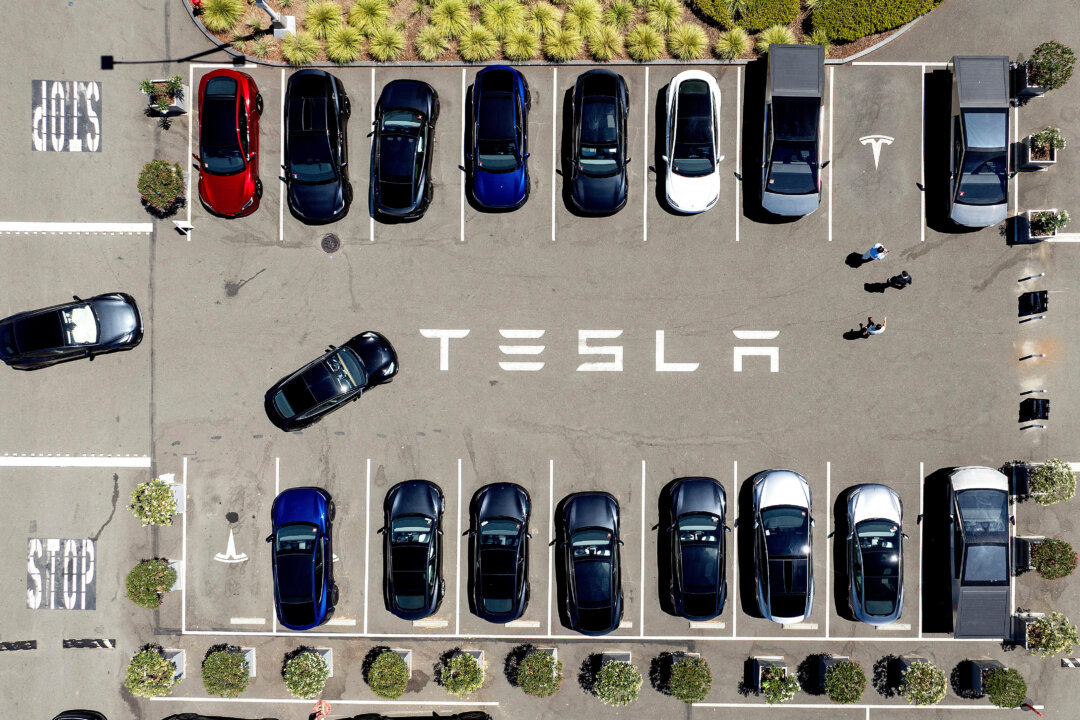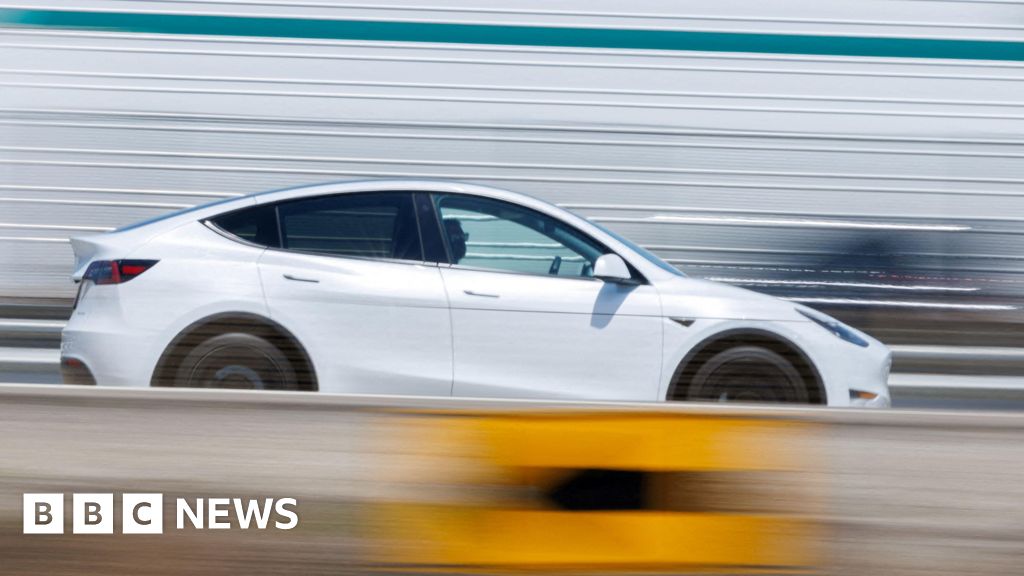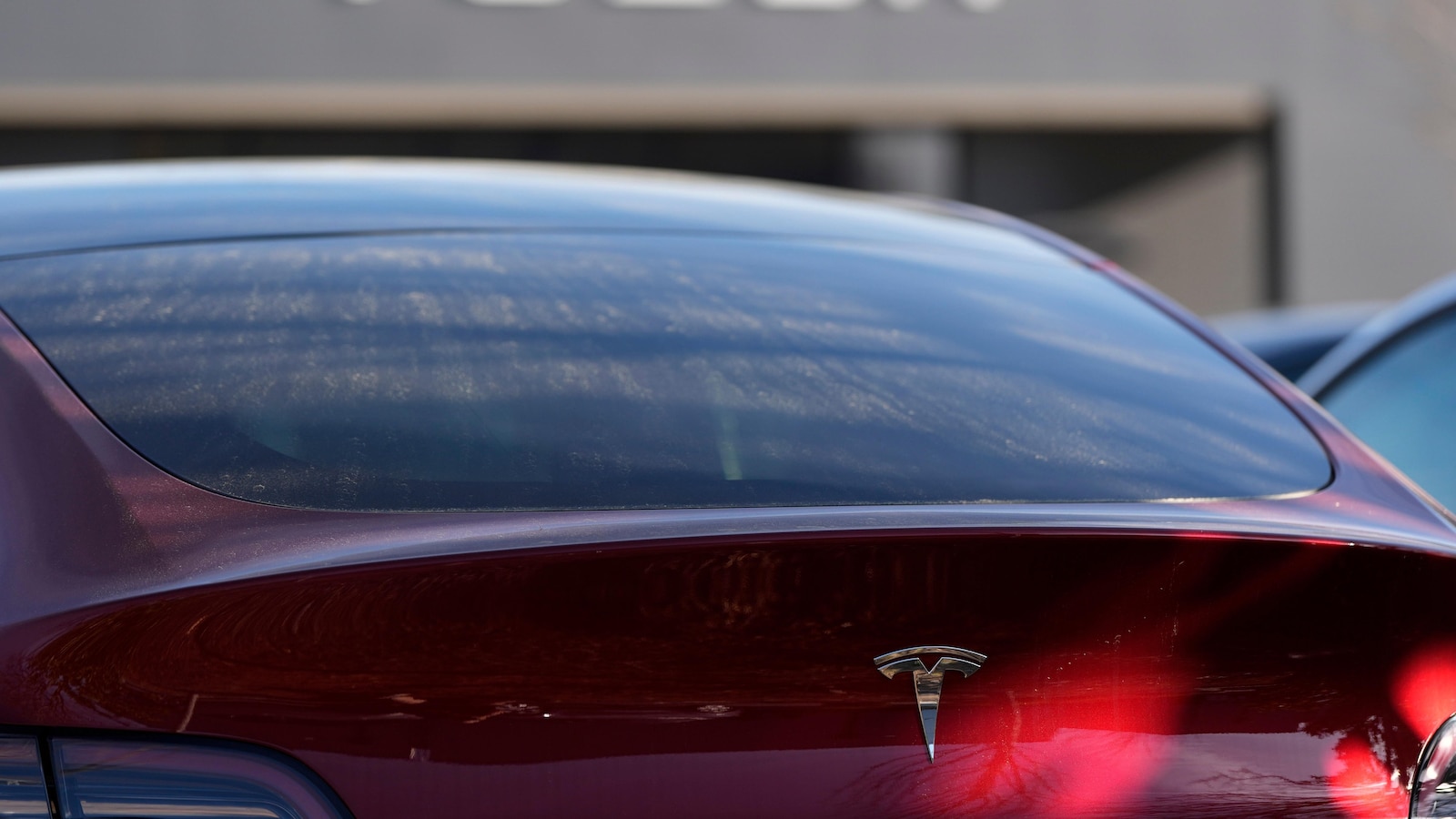Tesla Introduces Cheaper Models, Stock Drops Amidst Shifting Market Dynamics
Tesla introduced lower-cost Model Y and 3 versions, cutting prices by $5,000. Its stock dropped 4.5% after the announcement, sparking analyst reactions.
Overview
- Tesla introduced lower-cost Model Y ($39,990) and Model 3 ($36,990) versions, making US models $5,000 cheaper than previous offerings to attract more buyers.
- These modified, more accessible electric vehicles were introduced by Tesla to stimulate sales and regain market share amidst increasing competition in the automotive industry.
- Following the announcement of these new models, Tesla's stock decreased by 4.45% and closed down 4.5%, sparking negative reactions from analysts and business leaders.
- Separately, buyers rushed to capitalize on the expiring $7,500 federal tax credit, leading to record-high EV sales in September for Tesla, General Motors, and Ford.
- Analysts predict Tesla's annual deliveries may decrease for a second year, partly due to the new lower-cost models and factors like Elon Musk's political affiliations.
Report issue

Read both sides in 5 minutes each day
Analysis
Center-leaning sources frame Tesla's new standard-range models by emphasizing their "decontented" nature and perceived lack of value. They highlight CEO Elon Musk's "loss of interest" in car-making and the shelving of a cheaper Model 2. The coverage also unfavorably compares Tesla's pricing and features to previous models and competitors like Hyundai, suggesting the new offerings are not as compelling.
Articles (10)
Center (5)
FAQ
Tesla introduced the lower-cost 'Standard' versions of the Model Y and Model 3 to boost sales and regain market share amid increasing competition and a decline in sales in 2024.
The new 'Standard' versions start at $36,990 for the Model 3 and $39,990 for the Model Y, making them about $5,000 cheaper than prior offerings but still more expensive than Elon Musk's previously teased $25,000 Tesla, and they do not break the $35,000 price point initially promoted for the Model 3.
Following the announcement of the new lower-cost Tesla models, Tesla's stock dropped about 4.5%, prompting negative reactions from analysts and business leaders who are concerned about the company's near-term outlook.
The expiration of the $7,500 federal tax credit led buyers to rush purchases before the deadline, resulting in record-high EV sales in September for Tesla, General Motors, and Ford; however, the loss of this credit contributed to the recent price increases for Tesla's vehicles.
Analysts predict that Tesla’s annual deliveries could decline for a second consecutive year, due partly to the introduction of the lower-cost models alongside other factors such as CEO Elon Musk’s political affiliations affecting investor sentiment and demand.
History
- 2M

 6 articles
6 articles








